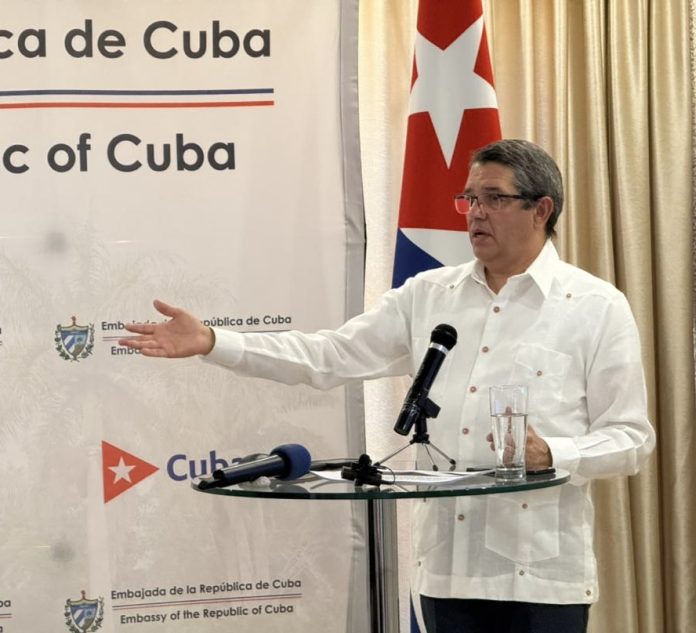Cuba’s Ambassador to Namibia, Sergio Vigoa de la Uz, has voiced serious concerns about the detrimental effects of the longstanding US economic blockade on Cuba’s social sectors, particularly in health, sports, and education.
At a recent press briefing, he emphasized that surgery services have been among the hardest hit due to shortages of essential medications and medical equipment. Presently, nearly 95,000 patients await surgical procedures. The Cuban national essential medicines list includes 651 items 250 imported and 401 domestically produced but 69% are affected by the blockade because of disrupted supply chains for raw materials or other complications.
The blockade also restricts Cuba’s access to advanced US made medical technologies and equipment, with about 10% of recognized healthcare components originating in the US. Cuba must therefore rely on third markets, which significantly increases procurement costs.
Beyond healthcare, the blockade has impacted Cuban sports to the tune of approximately US$4.1 million. Difficulties in processing payments for professional services both abroad and within Cuba are notable obstacles in this sector.
The educational sector has not been spared, suffering estimated losses of about USD 89.7 million. Critical equipment for visually impaired students, including 63 Braille machines and 20 Braille printers, remains in short supply, with only three printers currently available.
The United Nations General Assembly is set to vote once again on a non-binding resolution condemning the 63-year-old US embargo on Cuba. This year marks the 33rd consecutive year the resolution will be presented. Last year, the resolution, titled “Necessity of Ending the Economic, Commercial and Financial Embargo Imposed by the United States of America Against Cuba”, passed with overwhelming support: 187 votes in favor, two against (United States and Israel), and one abstention.
Following the resolution, the General Assembly urges all nations to repeal laws that support the blockade. Ambassador De La Uz reiterated that Cuba continues to suffer significant financial and economic hardships resulting from the embargo, first imposed in 1962 and further reinforced by laws such as the Cuban Democracy Act and the Helms-Burton Act. Additionally, the US has introduced 24 new sanctions against Cuba in the past nine months.
During the recent United Nations General Assembly high-level meeting, 43 countries, including Namibia, represented by President Netumbo Nandi-Ndaitwah, called for the embargo’s end.
Ambassador De La Uz explained the practical difficulties faced, noting that transactions involving Cuba must route through Europe, creating major obstacles. “For the collaborative work here, including across our network of about 130 embassies worldwide, a third cannot process transactions with credit or other cards,” he remarked.
To raise awareness and call for solidarity against the blockade, the Namibia-Cuba Friendship Association will hold an event in Windhoek on Saturday to denounce the embargo’s injustices.



